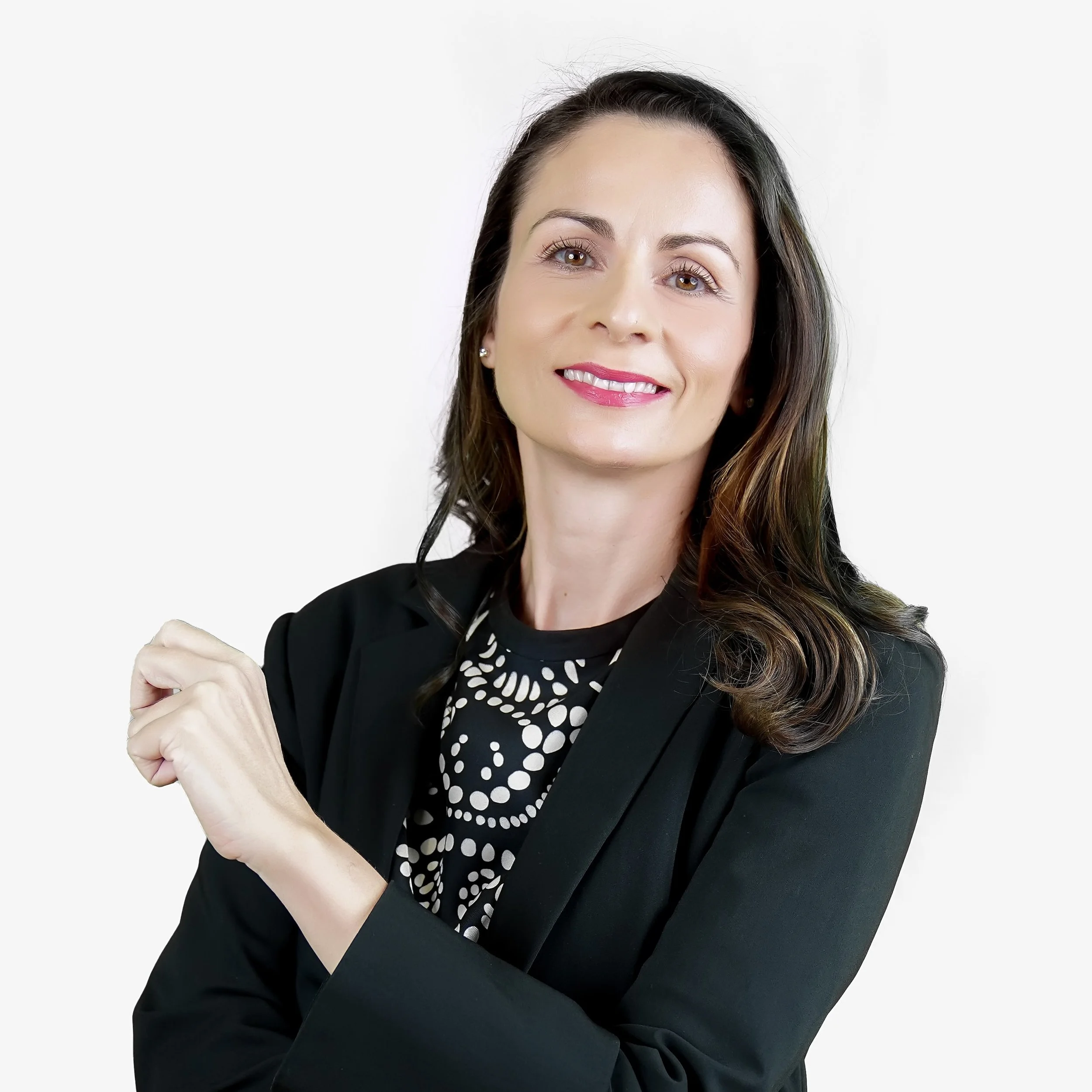Maria Flouda
Founder and Managing Consultant, Sustainability Switch Consultancy, UAE
Maria Flouda is the founder of Sustainability Switch Consultancy, a UAE-based ESG advisory firm dedicated to helping organizations align their sustainability strategies with international standards, national goals, and emerging technologies. With over 24 years of experience in ESG strategy, corporate sustainability, stakeholder engagement, and regulatory alignment, Maria supports companies in navigating complex sustainability challenges across diverse sectors.
She has advised some of the UAE’s largest entities in Real Estate and beyond including International Holding Company (IHC) on ESG reporting, decarbonization, and green finance. Both her strong technical foundation and strategic leadership skills position her as one of the leading ESG advisors in the region, known for delivering results that align sustainability with long-term business success.
Maria serves as Board Co-Chair of Lean In Equity & Sustainability, is a mentor under Masdar’s WiSER initiative and a partner of IRENA for youth and gender topics. She has contributed to international climate forums, including, COP28, COP29 and COP16 providing strategic insight on climate resilience, green transition, and sustainable finance.
An engineer by background, Maria holds a Master’s in Civil Engineering and Sustainability credentials from Cambridge University ,UK. A recognized speaker and changemaker, she brings a results-driven, policy-informed perspective to ESG advisory in the MENA region and beyond.
1. What circular economic opportunities are emerging in the GCC and wider Middle East? Are there sectors showing particular promise?
From my point of view, the circular economy in the GCC—especially in the UAE and Saudi Arabia—is really gaining momentum. One of the areas I’ve been following closely is waste-to-energy. Projects like Dubai’s Waste Management Centre, which will treat 1.9 million tonnes of waste every year and produce 200 MW of energy, are game changers. I’m also very impressed by the Bee’ah and Masdar project in Sharjah, turning 300,000 tonnes of waste into 30 MW of electricity—this is a big step toward reducing landfill use.
Recycling is another area where things are moving fast. Bee’ah’s complex in Sharjah is a great example, recovering materials like plastics and electronics with very advanced tech. In Saudi, the government-backed Saudi Investment Recycling Company (SIRC) is already running a facility in Riyadh that can recycle up to 20 million tonnes of construction waste. And with Saudi aiming for a 95% recycling rate, this is a clear signal that the region is serious about creating value from waste.
In my opinion, we’re also going to see big changes in regulation soon. I expect governments to roll out more detailed circular economy frameworks that will impact not just big industries but also SMEs and households. Innovation and AI will play a huge role here—already we’re seeing interest in startups and new solutions in this space, and I believe that in the next few years, this will grow even faster. It’s an exciting time for the region.
2. What role can government-owned entities and free zones play in accelerating waste reduction efforts? Are public-private partnerships working?
Based on my experience, government-owned entities and free zones play a big role in pushing forward the circular economy in the region. In the UAE, for example, Tadweer is leading major recycling and waste-to-energy projects across Abu Dhabi. In Saudi Arabia, SIRC is expanding recycling infrastructure and setting ambitious national targets. These organizations are showing strong leadership and shaping what sustainability looks like on the ground.
Free zones like KEZAD in Abu Dhabi are also doing great work. KEZAD has attracted companies working on advanced recycling, like PET and lithium-ion battery recycling, showing that sustainability is being taken seriously not just in talk but in real action. Projects like NEOM in Saudi Arabia are another example of how innovation and sustainability are being integrated from the start.
From what I’ve seen, public-private partnerships (PPPs) are the only way forward. Big projects like Dubai’s Waste Management Centre—built by Dubai Holding, Hitachi Zosen Inova, and BESIX—wouldn’t be possible without both government vision and private sector innovation. The same goes for the Red Sea Project in Saudi Arabia, which is targeting zero waste to landfill during construction with private partners like Averda involved.
In my opinion, governments and regulators now need to go one step further by creating clear frameworks for each sector—so businesses know exactly what’s expected. Leading by example is key. And finally, incentive schemes will be crucial. The circular economy brings long-term returns, but upfront investment can be high, and governments alone can’t deliver the energy transition and net zero goals without strong private sector involvement.

